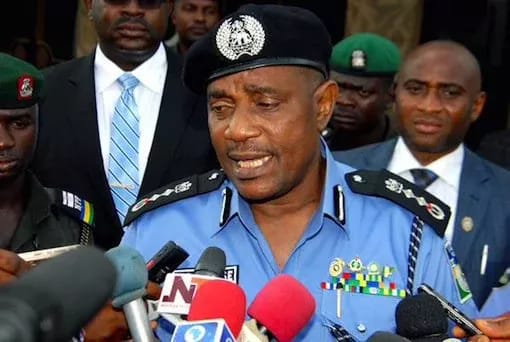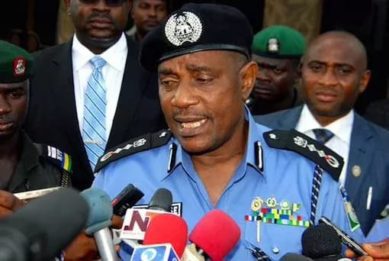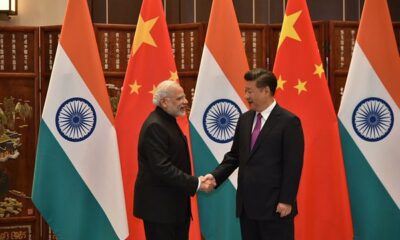Democracy & Governance
Police and Senate Investigation -By Zachaeus Adebayo


From the attempted forceful removal of the former Governor of Anambra State, Dr. Chris Ngige, from Office by a detachment of the Nigerian Police led by AIG Raphael Ige, to the misuse of the police in commando-styled impeachments during the Olusegun Obasanjo administration, and their latest role in the National Assembly crisis, the Nigerian Police leaves the impression of a police in total need of redemption.
President Muhammadu Buhari issued a Proclamation in accordance with Section 64(3) of the 1999 Constitution, stating the date and time for inauguration of the 8th National Assembly.
Although the Constitution does not permit even the President himself to reverse his Proclamation, it was only on that 9th June 2015 morning that some powerful forces within the ruling party sought to solve a problem they could not solve for the about 80 days since they were elected majority in the National Assembly.
It expectedly turned out a wild goose chase at the International Conference Centre. The flopped meeting was not enough to save the overbearing APC leaders and their anointed candidates from the defeat, which the endorsement of Hon. Yakubu Dogara and Senator Bukola Saraki by the PDP portended. The rest is history.
What will also go down in history is that it was also a day the police locked up all entrances into the National Assembly complex, allegedly on the orders of one APC big masquerade. The aim was to ensure that no members-elect or National Assembly officials gained entrance into the chambers until APC were through with their “morning tea session.” It took live situation reports and barrages of criticisms on various national electronic networks for the police to bulge.
Unable to hold the nation hostage and losing, then came the “we in the Senate because we were at the ICC” mantra, which doesn’t hold water. It is at best, a face-saving withdrawal. With 49 PDP block votes for Senator Bukola Saraki, Senator Ike Ekweremadu, Saraki needed just six APC votes to win. Again, with Senators Ali Ndume of Saraki’s camp and Senator George Akume (of Ahmad Lawan’s camp) sharing APC’s 59 votes, PDP’s 49 votes would have been more than enough to return him as elected possibly with more sprinkles of APC votes.
Again, the full compliments of APC Members in the House later in the day could not deliver Hon. Femi Gbajabiamila. APC’s undoing was a divided house caused by greedy party leaders who did not think those who joined them from the nPDP deserved anything from the
President to Vice President, Senate President, Deputy Senate President, and Deputy Speaker.
But rather than rebuild their broken ranks and move on, the same APC forces have sought to use their foot soldiers (Senate Unity Forum) to destabilise the upper chamber with spurious allegations and brawls. They only needed to allege forgery of Senate Standing Rule for the Police to go unabashedly partisan and unprofessional.
It is so bad that you would easily mistake the contents of the Report of the so-called police investigation as copiously served the public by a national daily, as one of the Lai Mohammed’s press releases.
The police undertook a one-sided investigation, taking testimonies from only the members of the Senate Unity Forum, namely Senators Suleiman Hunkuyi, Ahmad Lawan, Abdullahi Gumel, Kabiru Marafa, Gbenga Ashafa, Robert Boroffice, and Abu Ibrahim. The Senators of Like Minds, a pro-Saraki group and rival of the Unity Forum was totally ignored by the police.
All members of the 7th Senate interviewed by the police were either APC Senators or aggrieved PDP members who are not only mourning their loss of the party’s nomination in the 2015 general election, but who had since defected to APC in search of greener pastures. They were Senators Babafemi Ojudu, Solomon Ewuga, and Ita Enang who was the Chairman of the Senate Committee on Rules and Business.
No PDP Senator, either of the current or 7th Senate was interviewed. Contrary to report by a section of the media, except Senator Abu Ibrahim (APC) who was interviewed in his capacity as a member of the 8th Senate, no member of the 7th Senate leadership such as Senator David Mark, Senator Ike Ekweremadu, and former Senate Leader, Senator Victor Ndoma-Egba, were questioned by the police.
It is also curious that rather than investigate whether it has been the tradition in the National Assembly for the bureaucracy either of the Senate or the House of Representatives to come up with a Standing Rule for each new Senate or House, the police focused solely on whether the 2011 Rule was amended by the 7th Senate or not- as though anyone was claiming that the 7th Senate amended its Rule in the first place.
Rather than investigate how Senate Standing Rules come into existence, the Police deliberately proceeded from the wrong assumption that the defunct 2011 Rule for the defunct 7th Senate expressly applies and must be unconditionally inherited by the 8th Senate in 2015. Avoidance of contrary view can only be the sole or main reason for sidestepping serving and former PDP Senators.
The police also jettisoned the testimony of Mr. Ben Efeturin who is the Deputy Clerk to the National Assembly, the Clerk of the Senate, and currently about the longest serving legislative bureaucrat in the National Assembly. He has served since the Second Republic. Efeturin, according to the Police Report, said that “the Senate Standing Orders 2003, 2007, and 2011 followed the same procedure as that of 2015”. The Report also said “He (Efeturin) emphasised that in the parliament, amendment of Standing Orders is by practice and not by procedure”.
However, typical of an agency dabbling into matters beyond its call, the police easily agreed with the APC Senators that Senate Standing Rule 2015 did not follow due process since the new provisions providing for open secret ballot and more equitable distribution of committee positions were not done by the 7th Senate.
Have the police paused to ask how the first Senate Rule for this democratic dispensation (Senate Standing/Order Rule 1999) was made? It was produced by the bureaucracy. Likewise, each Senate gets a new Standing Order or Rule upon inauguration and is at liberty to amend it to taste for its four-year tenure. Provisions in the defunct Rules book are never sacrosanct. They are only valid to the extent that they were reproduced in the new one. A forgery would have therefore made sense if any amendments were made to 2011 and used by the 7th Senate within its lifetime without recourse to stipulated procedure for amendment.
A Standing Rule expires alongside the particular Senate it served. If it were not so, there would certainly not have been any need for Senate Standing Rule 2003, 2007, 2011, and 2015 for each Senate. What we would have simply had is “Senate Standing Rule 1999 (as amended)” as is the case with the 1999 constitution, showing that it is still one and the same document.
Against the backdrop of police’s worrisome conduct on all these, none would be surprised that they concluded in their Report that “This practice where some group of Senators amend the Rules without following legal procedure is not only criminal but portends danger for our growing democracy and should be discouraged”.
But the question is: since there were no Senators from that 4th June when the Senate adjourned sine die to the morning of 9th June when the new Senate was inaugurated and Senators handed the 2015 Standing Rule; since the leadership of the 7th Senate expired on 4th June and even those of them who got re-elected had no hand in the running of the National Assembly for that interval, what has “some group of Senators” got to do with Senate Standing Rule 20 Standing Rule 2015?
Indeed, whether the Inspector-General of Police, Solomon Arase, is falling on top of himself to be retained by the new government or the Deputy Inspector-General of Police, Dan’Azumi Doma, who headed the spurious police “investigation” hopes to be appointed as Arase’s replacement, it needs be made clear that it is actually the Police’s renown bendability and penchant for pleasing any government/people in power that portend grave danger to our democracy. Certainly, not the NASS bureaucracy acting within its conventional administrative competence or Senators electing leaders of their choice in line with Section 50 of the Constitution.
My worry was succinctly captured by Justice Gabriel Kolawole of the Federal High Court, Abuja, when he held in one of the litigations around the Standing Rule, that the court “find the involvement of the 1st Defendant (Police IG)- being an Agency of the Executive Arm of Government dabbling, albeit on an invitation of certain members of the Senate, into the internal affairs of the Senate a little bit worrisome”.
–– Adebayo writes from Ibadan



















